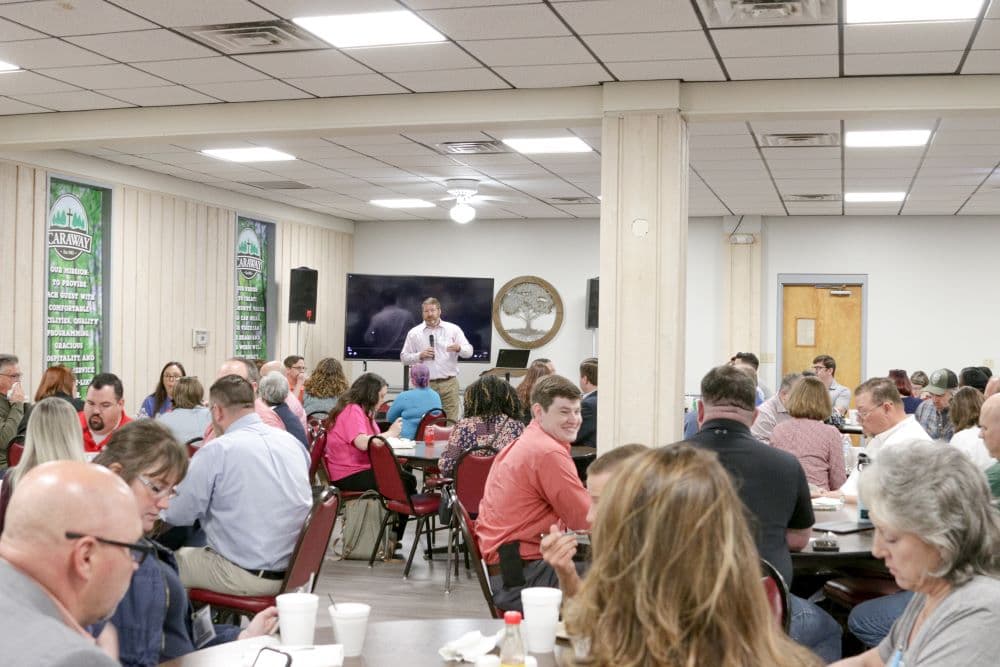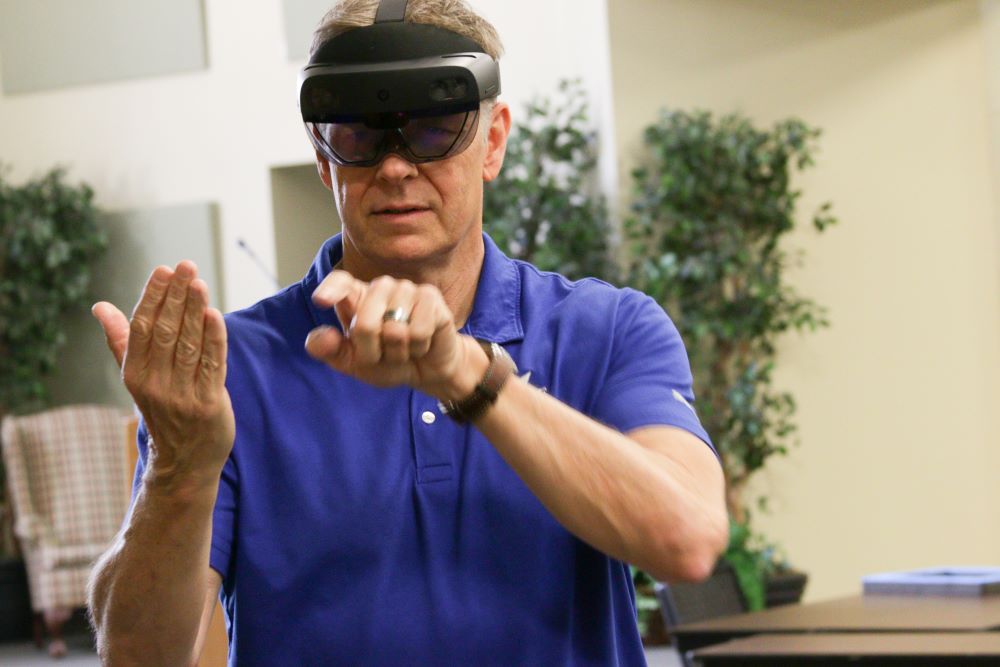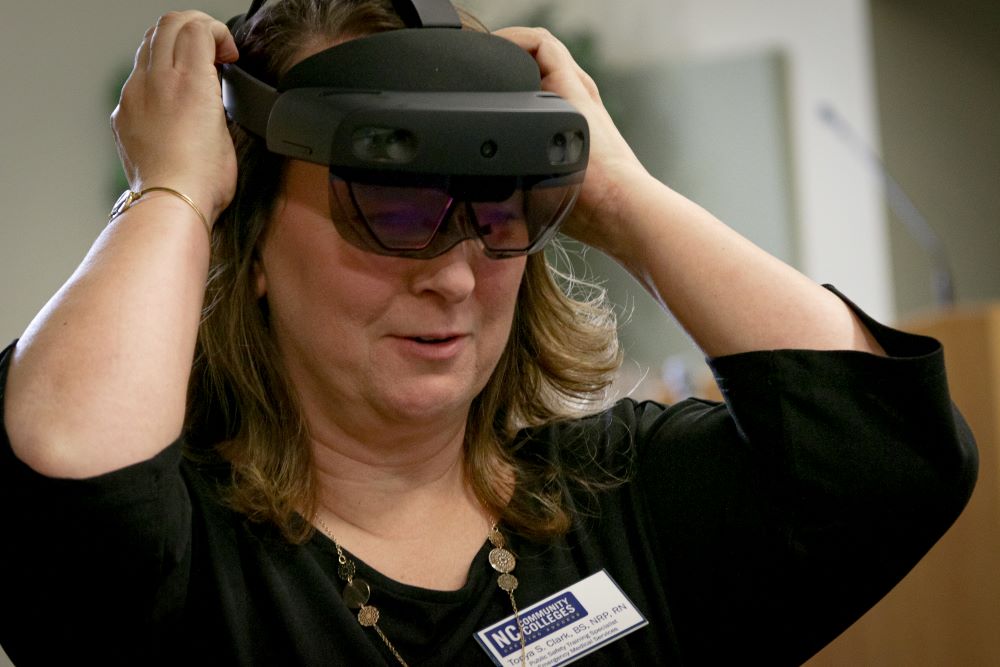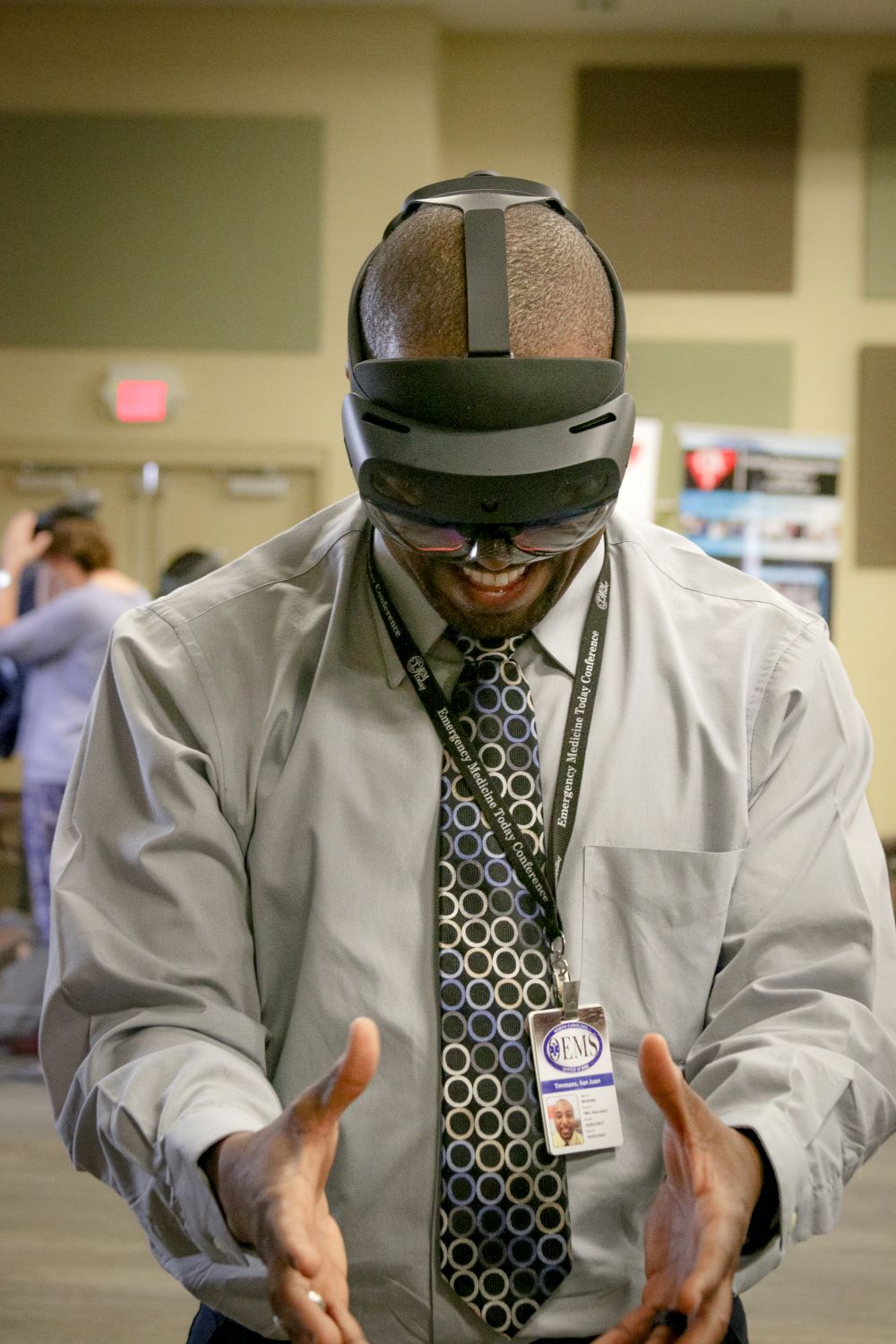College educators explore virtual reality teaching tools at Immersive Learning Conference

Published: April 18, 2023
The North Carolina Community College System hosted its second annual Immersive Learning Conference last week at the Caraway Conference Center in Asheboro.
Faculty, staff, and student advisors in career and technical education fields took a deep dive into virtual and augmented reality tools for students in healthcare and EMS programs to expand instructional methods for the future workforce.
“Community colleges need to be innovative and leverage technology to increase student access, success, and retention,” said Dr. Lane Freeman, Director of Online Learning at North Carolina Community Colleges.
 Approximately 70 individuals representing 35 community colleges in the state attended the three-day conference that showcased technologies that teach critical skills for in-demand jobs through hands-on, simulated training.
Approximately 70 individuals representing 35 community colleges in the state attended the three-day conference that showcased technologies that teach critical skills for in-demand jobs through hands-on, simulated training.
Freeman said the conference was designed to help faculty and staff explore new emerging technologies to extend educational opportunities in rural communities.
“Community colleges are best equipped to educate the next generation of workers in North Carolina. However, faculty and staff are often so entrenched providing instruction and advising, they may not have the opportunity to explore these new technologies,” he said. “We can provide support to our colleges by vetting emerging technology as pedagogically sound and practical and bring the technology to our colleges.”
Participants attended a series of workshops to learn how students could use virtual, augmented, mixed, and extended reality technologies in the classroom. Workshops were led by leaders in the VR industry, including TransfrVR, SimX, CAE Healthcare, UP360, and CareerLabsVR.
 Examples of simulated training include a paramedic student inside of an ambulance assessing a multi-trauma patient involved in a car accident, or tending to a patient in a triage tent that is experiencing shortness of breath.
Examples of simulated training include a paramedic student inside of an ambulance assessing a multi-trauma patient involved in a car accident, or tending to a patient in a triage tent that is experiencing shortness of breath.
Attendees also had the opportunity to try out the VR equipment firsthand.
“While it is interesting to look at a picture or diagram of a human heart, you get a much better grasp of the organ when you can see a 360-degree view and actually explore the internal structure within a headset,” said attendee Jordan White, Student Advisor at Southeastern Community College. “After attending this conference, I can see the immense value in using this technology in education. It allows users to immerse themselves in the subject matter and feel connected to the subject in a way that cannot compare to simply reading a textbook or looking at photographs and videos.”
 Though students still need to be trained in the field and labs, virtual environments can serve in a supplementary role to increase proficiency. By practicing in a virtual environment, students reduce the time, money, and resources required to spend in a physical workspace. These new technologies provide students with equal access to instruction by providing the opportunity to practice hands-on skills in flexible locations and times.
Though students still need to be trained in the field and labs, virtual environments can serve in a supplementary role to increase proficiency. By practicing in a virtual environment, students reduce the time, money, and resources required to spend in a physical workspace. These new technologies provide students with equal access to instruction by providing the opportunity to practice hands-on skills in flexible locations and times.
“I hope attendees come away with knowing that there are new ways to deliver instruction and that we must have a growth mindset when it comes to meeting student learning outcomes,” Freeman said. “I also hope attendees saw new ways to recruit future students knowing that this technology appeals to a younger generation and that it may provide opportunities for students to explore careers without having to leave the classroom.”
The next Immersive Learning Conference will take place in Spring 2024.
Contact Dr. Lane Freeman with any further questions about this event.